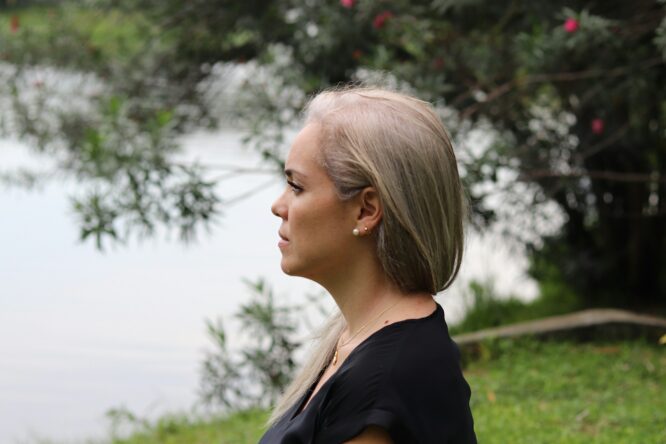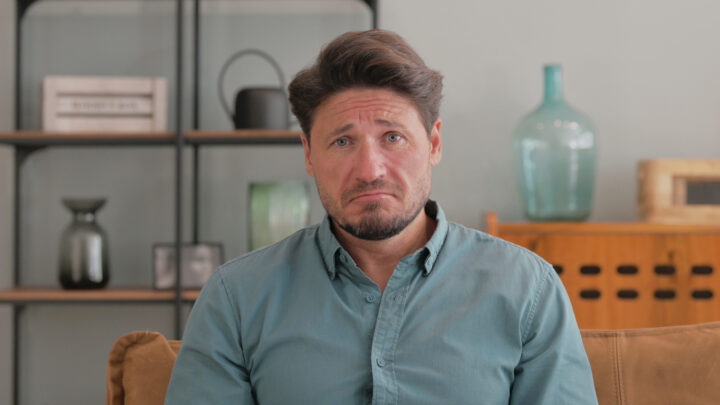Betrayal trauma doesn’t just break your heart—it shakes your foundation.

It happens when someone you relied on deeply—emotionally, romantically, or even spiritually—violates that trust. That kind of hurt isn’t just emotional disappointment. It cuts at your core sense of safety. You start to question your judgement, your memory, your sense of what’s real. The hardest part is learning how to trust again—not just other people, but yourself. Here’s what betrayal trauma really looks like, and what helps when you’re trying to rebuild your trust from the ground up.
1. You feel disoriented, like your whole reality got pulled out from under you.

Betrayal trauma creates this dizzying sense that nothing is what it seemed. The person you loved, leaned on, or looked up to suddenly feels like a stranger. And because you trusted them, the betrayal doesn’t just hurt. It confuses your entire internal compass.
That kind of disorientation isn’t you being dramatic. It’s your brain and body trying to make sense of a rupture that goes far deeper than surface-level pain. It’s the ground moving beneath you when you thought you were on solid footing.
2. It’s not just about what they did—it’s about what it cost you.

The betrayal itself might be clear—a lie, a secret, an affair, a breach of confidence. However, the ripple effects are subtler and longer-lasting. It might have cost you your sense of safety, your ability to rest, your trust in your own instincts. This is why betrayal trauma can feel like grief. You’re mourning not just the relationship, but the version of you that felt secure before it all shattered.
3. Your nervous system stays in a state of alert, even long after it’s over.

You might find yourself jumping at small things, struggling to relax, overthinking text messages, or watching people closely for signs they’ll change. It’s not paranoia—it’s your nervous system still trying to protect you. Betrayal flips your internal alarms on. They don’t turn off just because the relationship ends or time passes. Healing means learning how to show your body that it’s safe again, even when it doesn’t feel like it yet.
4. You start to doubt your ability to spot red flags, or trust green ones.

After betrayal, it’s common to look back and question every moment. “How did I not see it?” “Was I being naive?” That retrospective self-blame can be brutal, and it doesn’t help you move forward. The truth is, trust wasn’t your mistake. Their choice was. Still, when someone abuses your trust, it can take time to believe your own gut again, even when it’s trying to protect you, not trick you.
5. Hyper-independence becomes your new survival strategy.

When trust is shattered, leaning on people can feel impossible. So you do it all yourself. You stop asking for help. You stop letting people in. You build a fortress—not because you’re strong, but because you feel like it’s the only way to stay safe. However, real healing often requires softness, not walls. The goal isn’t to need no one; it’s to learn how to be held by the right people, slowly, at your own pace.
6. You try to fix it by becoming “better,” but it doesn’t stop the pain.

After being betrayed, some people try to reclaim control by changing themselves. You might think, “If I were more secure/more attractive/more forgiving, maybe this wouldn’t have happened.” Of course, betrayal isn’t caused by your inadequacy. It’s caused by someone else’s decision to break trust. Healing means taking the blame off yourself and seeing that you didn’t deserve what happened, even if your inner critic tries to argue otherwise.
7. You crave closeness and push it away at the same time.

One of the hardest parts of betrayal trauma is how it distorts your relationship with connection. You might long for love, warmth, or intimacy, but flinch the moment someone gets too close. It’s got nothing to do with mixed signals. It’s about your heart wanting to feel safe again, and your nervous system still remembering what closeness once cost you. Both things can be true at the same time.
8. Trust becomes something you want to believe in, but struggle to feel.

You might want to trust your new partner, your friends, even yourself, but the feeling doesn’t land. It’s like the channel for trust got static. You understand it logically, but emotionally, it still feels dangerous. This disconnect isn’t failure. It’s a survival response. Your body is still catching up. With time, trust doesn’t just return; it rebuilds itself, one safe experience at a time.
9. You start to romanticise emotional distance.

When vulnerability has cost you before, detachment starts to look smart. You start idealising relationships where there’s less risk, less intimacy, less depth. It feels like protection, but it can become isolation. There’s nothing wrong with being cautious. But if every connection starts to feel like a threat, it might be time to ask whether fear is making the decisions, not your actual needs.
10. Learning to trust again starts with small, low-stakes moments.

Trust doesn’t have to start with a big leap. It begins with noticing who shows up consistently, who respects your no, and who doesn’t punish you for having boundaries or feelings. It’s built through hundreds of tiny moments that tell your system, “You’re safe here.” Those moments might feel insignificant, but they matter more than grand gestures. Consistency is the love language of safety, and safety is the foundation of real trust.
11. Rebuilding trust with other people often mirrors rebuilding trust in yourself.

If you’ve been betrayed, self-trust is usually one of the first casualties. You might doubt your memory, your choices, even your worth. That internal rupture can be just as painful as the one between you and the person who hurt you. Healing starts when you begin to trust your own instincts again. When you stop gaslighting yourself. When you believe that what you felt was real, and what you need now is valid. That kind of inner trust rebuilds everything else.
12. Healing doesn’t mean forgetting; it means learning how to feel safe again.

You don’t need to “get over it” to move forward. You don’t need to erase the pain or pretend it didn’t matter. Healing isn’t about going back to who you were before. It’s about becoming someone stronger, softer, and more self-protective in the right ways.
Trust doesn’t get rebuilt overnight. However, with time, it stops feeling like a risk and starts feeling like a home you’re allowed to return to. It’s one that you’ve rebuilt, brick by brick—with boundaries, clarity, and care.



